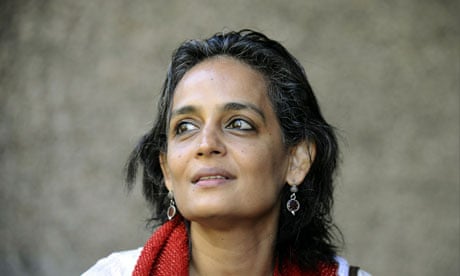South Asia's media landscape is rich, diverse and contradictory. Yet the risks to independent journalism are real, and show no signs of abating.
It would be an understatement to say this has been a difficult year for journalists in the subcontinent. In Pakistan at least a dozen media professionals have died in terrorist attacks throughout the country. At least one journalist, Vijay Pratap Singh, has died in India as a result of similar violence.
Equally deadly has been the fate of the few journalists in Sri Lanka brave enough to challenge the government's narrative of a clean and effective war against the erstwhile Tamil Tigers. Lasantha Wickrematunge, who was critical of the Rajapaksa government, was shot dead after numerous run-ins with authorities over his reportage.
At its core, all these instances go to one of the great paradoxes of the subcontinent. Namely, the fact that while life is often harsh and difficult, there are also tremendous freedoms and privileges for those lucky and smart enough to avoid certain red lines.
The mechanics and specifics of those red lines may vary from country to country, but in all of them one common ingredient is exposing the failings of the national security establishment. After the author and activist Arundhati Roy criticised Indian oppression in Jammu and Kashmir, stating that the restive region has never been an integral part of India, she was threatened with prosecution for sedition.
Journalists have been heavily restricted from independently reporting India's continued crackdown on Kashmiri independence protests. Only a limited number of local journalists were issued curfew passes at the height of the crackdown in July and August, and a BBC Urdu service reporter was beaten by police as he tried to collect his curfew pass.
For journalists in Pakistan, the consequences can be even more dire. This month journalist and activist Abdul Hameed Hayatan was found dead after going missing in the province of Balochistan in October. His death has been widely blamed on Pakistan's security forces – like so many others in the province, where a conflict involving the state and several different insurgent groups has been characterised by targeted killings, abductions and extrajudicial killings.
More journalists have been killed, kidnapped or attacked in conflict-ridden Balochistan and the Pashtun tribal areas than in any other part of Pakistan. Elements of the Pakistan Taliban network and other insurgent groups have been blamed for most of these deaths.
Yet it isn't only on the frontlines that journalists face abuse. On the evening of 4 September, the investigative reporter Umar Cheema was kidnapped by what appeared to be a police patrol while driving home in Islamabad. "They stripped me naked and tortured me," he recalled. Tied upside down, Cheema was badly beaten and had his eyebrows, moustache and hair shaved in a six-hour ordeal after which he was thrown on to a highway some 125 kilometres from his home in Islamabad.
Cheema quickly realised his captors were in fact part of Pakistan's secretive intelligence agencies. What got him into hot water was not reportage on the army's atrocities or its involvement in military operations with the US, but its incompetence in prosecuting persons accused of killing army personnel, including the chief suspect in the assassination of General Mushtaq Baig, the most senior army officer killed by militants so far. Cheema also reported on doubts faced by some of the elite army commandos who were to partake in the Islamabad Red Mosque siege of 2007. Two commandos were court-martialed and imprisoned for calling for a political settlement of the siege.
In the past, criticising the civilian government could have deadly consequences. And, to be sure, government-aligned political activists have recently attacked journalists they considered hostile to them. But journalists pay a heavier price for criticising the military establishment.
According to the Committee to Protect Journalists no one has been prosecuted for murdering a journalist in Pakistan except in the Daniel Pearl case. Civilian authorities set up a judicial commission to investigate Cheema's abduction, but it appears to be languishing and there have been no significant investigations of army authorities.
"We are not in the habit of writing [critical things] about the army," Cheema says, adding that while freedom of expression is very important, restrictions on free expression stifle innovation and creative thinking – the very things Pakistan needs at a time when it is rocked by poverty, insurgency and religious intolerance. People in Pakistan are afraid to criticise the "sacred cows" of the state, he adds, like highlighting the shortcomings of the army or criticising mainstream religious groups for ignoring homegrown militancy.
"All the while," he says, "the US and Britain continue to push Pakistan to escalate the war against Islamist militancy with no sense of irony. But if we do not support those Pakistanis who honestly seek to keep our military accountable, what hope is there that our war will create a more democratic society in Pakistan?"
